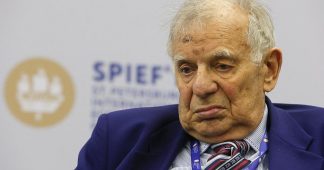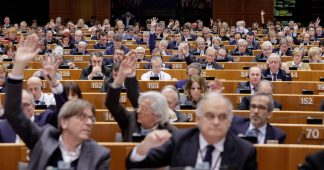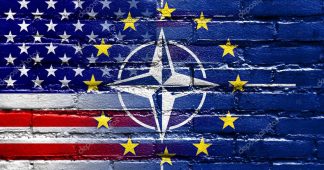Elections in May could finally allow populists and nationalists to remake the e.U. from within
The decision came as a surprise.
When the Nobel Committee awarded its annual Peace Prize in 2012, the betting markets had predicted a laureate involved with the Arab Spring. Almost no one expected the prize to go to a fusty institution that had transformed a continent of war to one of peace–the European Union. “War is as old as Europe,” explained Herman Van Rompuy, the first European Council president, accepting the award in Oslo in December that year. “Our continent bears the scars of spears and swords, cannons and guns, trenches and tanks, and more.”
Today, Europe calls to mind bureaucracy. Instead of gunfire and the rattle of tank tracks, the soundtrack to the E.U. is the quiet rustling of papers in the hallways of its capital, Brussels. After the traumas of genocide and upheaval, Europe now embraces compromise. “For this,” Van Rompuy said, “boring politics is only a small price to pay.”
But they’re not so boring lately. One of the world’s most extraordinary experiments in governance–a union throwing together what is now 28 countries with wildly different cultures, to fight around a negotiating table rather than on the battlefield–is under siege from within.
In the decades after the signing of the Treaty of Rome in 1957, which created the E.U.’s predecessor, glorious blandness came to define Europe. Over time, countries surrendered segments of their governance to a faceless entity that diffuses authority across a handful of confoundingly named institutions: the European Council, the Council of the European Union, the European Parliament and the European Commission.
Read more at https://time.com/magazine/us/5568295/april-22nd-2019-vol-193-no-15-u-s/











